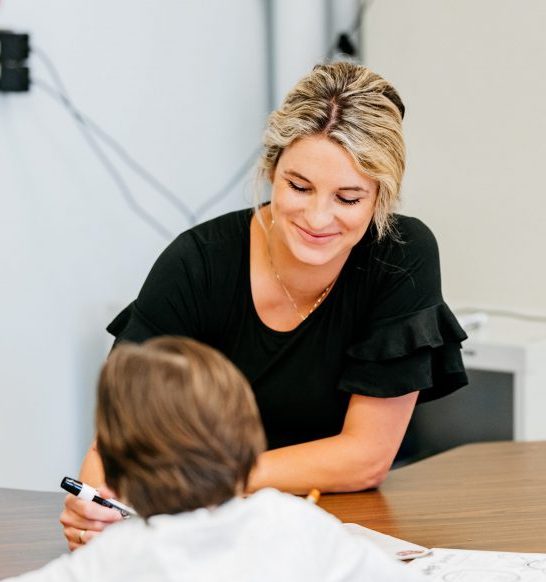Unsure how to help your child who is struggling in school? Speak with our family outreach coordinator to learn how Springer may be able to help.
Springer Diagnostic Center is open to the public and provides a range of psychoeducational evaluations for students in grades K-12.
We are your partners from step one.
Our goal is to provide a comprehensive understanding of your child so that they are empowered to achieve their full potential on their educational journey. Success is possible!
Let's Talk!
First, submit your appointment request and schedule your initial conversation. Next, we talk! A member of our team will speak directly with you to begin building an understanding of your child and your concerns.
 Evaluation and Interview
Evaluation and Interview
Our diagnostics staff take a collaborative approach to understanding your child. This includes getting to know your child and gathering history through you, your child, and other providers. This part of the process is tailored to you and your child’s unique needs and will be discussed in our first conversation.

Feedback Session
After the evaluation, our psychologist and relevelant professionals will meet with you to provide insightful answers, tools, and solutions so you leave feeling empowered to advocate for your child.
Ongoing Support
We understand that receiving a diagnosis of a learning disability or attention disorder can be overwhelming. There is so much new information to take in and many decisions to make. We are here as your partner through this journey, ensuring you have all the information needed to help your child gain the tools for success.

At Springer, we believe all children deserve to be well understood.
A comprehensive psychoeducational evaluation can shed light on how your child learns and what you can do to empower them to succeed in school.
At Springer Diagnostic Center we can go beyond the diagnosis to empower parents, guardians, and students with a clear understanding of your child’s learning challenges and provide resources to ignite success.
We provide diagnostic evaluations to children in K-12. Our staff is wide ranging in their expertise and includes speech-language and occupational therapists. With a professional, comprehensive evaluation we can determine why a student is struggling and where the learning process is breaking down. With this information, you become equipped to take the next best step for your child. We are here to partner with you along the way.
Components of a Psychoeducational Evaluation
Assessments that look at underlying factors that affect how a student processes information, such as memory, processing speed, and verbal/nonverbal abilities.
Assessments that specifically target all areas of academic strengths and weaknesses in reading, writing, math, and spelling.
Assessments that examine areas that affect learning and processing may or may not include neuropsychological measures. Some of the areas we examine are attention, focus, and controlling feelings of anxiety and depression.
Assessments for receptive language, expressive language, pragmatic language, articulation, handwriting, and visual motor skills. These assessments may or may not be included in the psychoeducational evaluation based on your child's needs.

Unsure how to help your child who is struggling in school?
Contact us today to schedule a Diagnostic Assessment
Molly Bernosky, Ed.S., M.Ed.
Diagnostic Center Director
Deborah Gilbert, Ph.D.
Diagnostic Center Psychologist
Bradley Paramore, Ed.S., NCSP
Diagnostic Center Psychologist
Shelby Chamberlin
Family Outreach Coordinator
Nic Smith
Center Office Manager



